The Distinctly Montana Interview with Michael Punke
Author of "The Revenant," "Ridgeline," and "Last Stand: George Bird Grinnell, the Battle to Save the Buffalo, and the Birth of the New West"

DM: As the editor of Forest and Stream, Grinnell played a considerable role in getting hunters and sportsmen to endorse conservation. Do you think that sportsmen today have similar influence?
MP: Absolutely. There is no question that hunters and sportsmen today have enormous political influence. Look at the conservation impact of groups like Trout Unlimited, Ducks Unlimited, the Rocky Mountain Elk Foundation. Look at the conservation work of sportsmen like MeatEater's Steve Rinella.

DM: Do you think Grinnell's early interest in paleontology and his first explorations hunting for fossils on the plains informed his later interests in conservation?
MP: Remember that knowledge of the dinosaurs and prehistoric animals was new in the 19th century. Grinnell's hands-on experience digging for dinosaur bones in places like Wyoming showed him that extinction was possible – it had happened before. He could imagine something that many people in his era could not: That a species could be wiped off the face of the earth.
DM: In Last Stand, you describe how early tourists chipped pieces off hot springs and shot the wildlife, and today we still see tourists who walk off of the boardwalk or approach wild animals. Is 'tourism' bad for the environment?
MP: It's wonderful for people to go out and experience wild places. But for me, our frame of reference should be our children and our children's children. We all have a moral responsibility of stewardship for future generations. I love the wilderness creed of 'leave no trace.'
DM: You describe in Last Stand how for much of Yellowstone's early history Congress didn't allocate the park a budget, early park rangers couldn't arrest or fine poachers, and railroads threatened to bite off a big chunk of the northeast corner. What can we learn from those precarious beginnings?
MP: Here, we owe a great debt to past generations – people like George Bird Grinnell whose vision and tenacity protected places like Yellowstone and Glacier. But protecting these places did not happen by accident, or without great opposition. Telling the story of the razor's edge on which the fate of those places once rested should make us all appreciate them even more – and not take them for granted today.
DM: Can you talk a bit about your research process?
MP: My two favorite parts of researching Last Stand were hiking up the Pelican Creek Valley in Yellowstone to see the site of Edgar Howell's infamous buffalo massacre – and my time looking at original documents in the Yellowstone Archives in Gardiner, Montana.
DM: What is the most grisly buffalo hunting anecdote you came across in your research?
MP: It is noteworthy that buffalo skinners sometimes smelled so bad that they were denied admission to frontier saloons. As you might imagine, that was a pretty low bar that they still couldn't clear.
DM: Grinnell's relationship with his mentor Lucy Audubon laid the foundation for establishing a link between personal self-denial and the conservation movement. Can you talk more about what "self-denial" meant to Lucy Audubon and how self-denial as a practice might or might not relate to environmentalism today?
MP: By "self-denial," Lucy Audubon really meant one generation not consuming everything – but rather providing stewardship for the benefit of future generations. Her ethics were hardly popular in the robber-baron heyday of the Gilded Age. As a sportsman, George Bird Grinnell applied the concept of self-denial to advocate for things like hunting seasons and game limits. And yes, Lucy's concept remains the foundation of environmentalism today.
 DM: On that note, you express in Last Stand a hope that we can mitigate the effects of climate change. Fifteen years on, how do you feel about it?
DM: On that note, you express in Last Stand a hope that we can mitigate the effects of climate change. Fifteen years on, how do you feel about it?
MP: It's hard not to be dispirited by where we're at on climate change today, but that said, I do take inspiration from George Bird Grinnell. He lived through the near total destruction of the American buffalo herd, but never quit fighting to save them. As a direct result of his perseverance, Yellowstone was protected and the wild buffalo herd in the park is alive today.
DM: What are you reading now?
MP: Related to the Old West, I’m currently reading A Terrible Glory, a nonfiction book about the Battle of the Little Bighorn by James Donovan. Related to the New West, I’m reading Brothers on Three by Abe Streep, a book about the Arlee Warriors basketball team in Arlee, Montana.
DM: In Ridgeline, your latest novel, you portray events that led to the Fetterman Massacre. Why did you choose this particular event rather than more famous incidents like the Battle of Little Bighorn or the massacres at Marias River, or Wounded Knee?
MP: In some ways, I love the fact that fewer people know about the Fetterman Massacre. There's an element of discovery such a story and it's fun to bring a less-known historical event to life. I liked that about the Hugh Glass story with The Revenant. I like it when people read my books and kind of go, “Wow, how did I not know about this before.”
DM: You characterize Captain William Fetterman as a capable and level-headed officer when so many other writers have made him look foolish or inept. Do you feel this is more accurate to the historical record?
MP: I did a lot of research on the Fetterman battle, and in my view, the best historical evidence pointed to the explanation that I dramatized in Ridgeline. At the end of the book, I point readers to the nonfiction books that I found most persuasive so they can decide for themselves.
DM: Both The Revenant and Ridgeline feature Jim Bridger, albeit at very different stages of life. Do you consider the two novels to be companion pieces?
MP: The Revenant and Ridgeline are free-standing stories. You don't need to read The Revenant to enjoy or to understand Ridgeline, but the fact that Jim Bridger shows up as part of the true history of both stories was, to me, one of those really amazing things that you can't make up (and don't have to!). I have a photo of Jim Bridger on the wall in my study – and he's always been a hero to me.



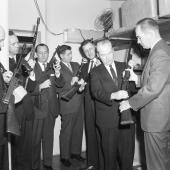

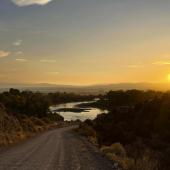


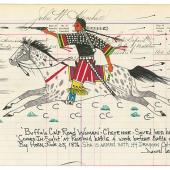
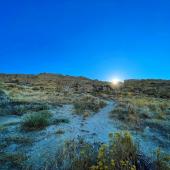
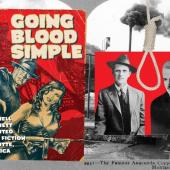
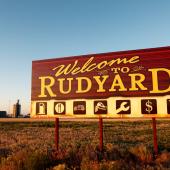
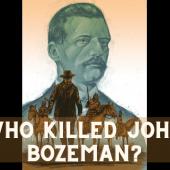
- Reply
Permalink